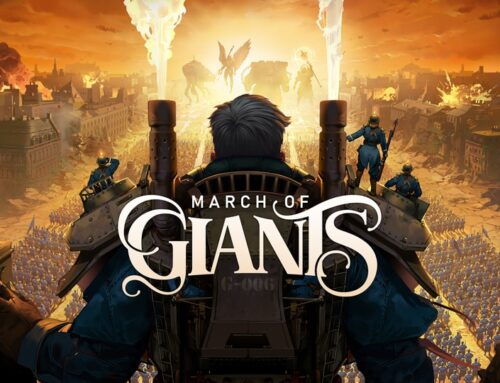Investing in Biology: The Key to Sustainable Innovation in Drug Development and Healthcare
June 6, 2025
Over the past few years, the biotech industry has endured a long winter. Investor enthusiasm has cooled, valuations have dropped and companies have had to tighten their focus. Yet one area continues to attract attention and investment – the promise of artificial intelligence (AI) to revolutionize drug discovery.
Several AI-first biotech companies, or “techbios” as they are sometimes called, have secured massive funding during this difficult period. These include Isomorphic Labs’s latest US$600 million round in March 2025 and AI startup Xaira Therapeutics’ US$1 billion backing late last year.
Many AI-first biotech companies are built on the belief that machine learning and algorithms using existing data can accelerate the process of finding and designing new drugs. It’s true that AI can identify new potential drug candidates, but the challenges these companies have faced in getting drugs through clinical testing have made one thing very clear: AI alone is not enough to solve drug discovery’s most persistent challenges.
If we want true, sustainable innovation in drug development – and a financially viable healthcare system – we must reinvest in biology with the same urgency and passion currently fueling AI.
The reality check: clinical setbacks and the limits of AI
AI can help us get insights faster, cheaper and with greater odds of success, and tomorrow’s AI technologies may even make today’s look slow and traditional. But no matter how fast or innovative, AI’s potential impact on biotech depends entirely on the quality of the biological data it learns from. High-quality, well-annotated biological samples are not just a nice-to-have – they are essential to unlocking trustworthy, translatable insights from AI.
The techbio space illustrates this challenge. As STAT News reported recently, tech-first models have been widely hyped but have generally failed to deliver on their promises. History has shown that shortcuts in medicine, like the introduction of thalidomide and the ensuing crisis of birth defects that followed, ultimately lead to failure or harm. More recently, the high-profile clinical trial failures of several AI-derived drug candidates (such as BenevolentAI and Exscientia’s trials), perhaps due to a lack of real-world validation or good quality data, illustrate the limitations of AI.
As Jack Scannell, the researcher who coined “Eroom’s Law”, famously pointed out:
“The number of new drugs approved for every $1 billion spent on R&D has halved roughly every nine years, in part because we’ve already solved the easy stuff. Solving the harder stuff requires new biological insights and models — and generally, we’ve underinvested in that science.”
Today’s biggest healthcare challenges – neurodegenerative diseases, complex cancers, rare genetic disorders – are not simply computational problems. They are biological problems. Our existing disease models are frequently wrong or incomplete, and no amount of machine learning can compensate for poor-quality inputs.
In drug discovery, biology sets the rules. AI is the tool.
Ignoring that fundamental truth leads to misplaced bets, clinical failures, wasted resources and expensive healthcare – outcomes that the biotech sector, and healthcare systems globally, can no longer afford.
The dangers of synthetic data and the need for real-world validation
One worrying trend is the increasing use of synthetic data to train AI models.
While generative AI can produce vast datasets, synthetic data, especially data generated by using already synthetic data, often loses fidelity compared to real-world biological and clinical data.
Without grounding datasets in patient-derived biospecimens, diverse clinical records and real-world outcomes, AI-driven discoveries risk being illusory – promising on paper, but disastrous in the clinic.
In an environment where the cost of clinical failure is measured in billions of dollars and patient lives, grounding AI predictions in real-world, validated biology is not optional – it’s essential.
Why investing in biology is a healthcare imperative
The consequences of getting the use of AI in health and medicine wrong extend beyond the biotech industry. Around the world, healthcare costs are skyrocketing, bankrupting governments and straining personal and public finances.
In the United States, healthcare accounts for nearly 20% of GDP. In many European and Asian countries, healthcare expenditures outpace economic growth. Emerging markets are grappling with building sustainable systems amid increasing disease burdens.
Late-stage treatments for cancer and chronic diseases are extraordinarily expensive. Early intervention, precision prevention and better models of disease are needed to make healthcare more accessible and make funding it more sustainable.
These solutions are impossible without deeper biological insights.
Investing in biology offers many opportunities to improve healthcare innovation while potentially improving patient outcomes and reducing costs. For example, it enables the discovery of novel biomarkers for early diagnosis when treatments, especially for cancer and chronic diseases, can be more effective. Better biological inputs improve the accuracy of disease models, which can reduce clinical trial failure rates, spurring innovation and improving outcomes for patients in clinical trials. It can also help the healthcare system better model biology to enable precision medicine, helping to shift healthcare from an art to a science, and from a reactive “treatment-driven” system to a more proactive “prevention-focused” system that is both more affordable and more humane.
In short, biology is not a bottleneck to be bypassed by AI. It is the foundation AI must learn to respect and leverage.
Building the future: biology-first, AI-empowered
The AI era has arrived. AI can accelerate drug discovery. But only biology can determine how well this new generation of AI-designed therapies will perform in patients.
The path forward is clear:
- Build systems biology models that mirror the true complexity of the human body, not just isolated cell lines or DNAs.
- Use multiomics approaches – genomics, transcriptomics, proteomics, metabolomics – to capture biology at every level.
- Ground discovery in diverse biobanks and real-world patient data, not just simulations.
- Incorporate clinical context – physician notes, longitudinal health records – to bridge the gap between molecular science and lived patient experience.
Those who invest deeply and intelligently in biology today – alongside AI – will lead the next generation of sustainable biotech innovation and create a foundation so that healthcare can be more financially viable for the future.
Search
RECENT PRESS RELEASES
Related Post


